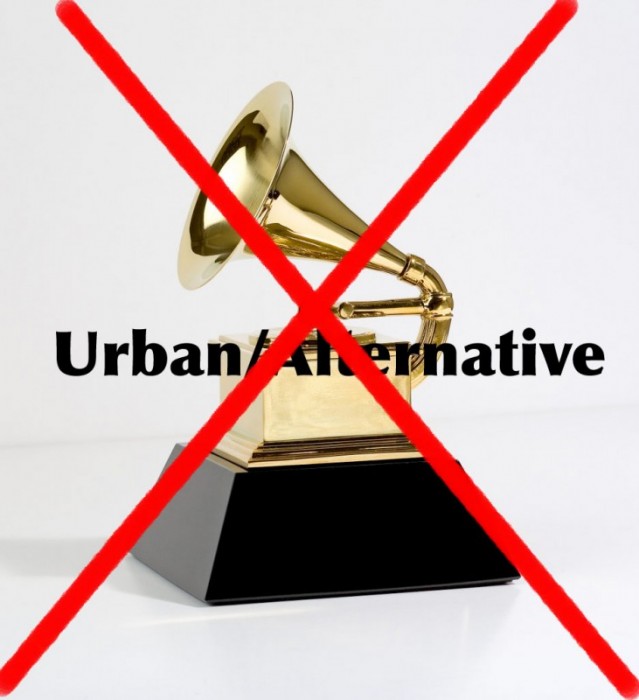So I’m looking through the list of the recently announced 2011 Grammy nominees for the Urban/alternative category and I don’t see it. Why? Because it’s gone.
As the PR folks from the Grammys told me, it was “merged and renamed: Best Alternative Music Album or Best R&B Album”.
To say the least, that’s a bummer. So, thanks, R&B Committee, for making it that much harder for black music artists who color outside the lines to break into the industry’s inner circle. At issue here is not whether they can become part of the industry machine. Rather, a Grammy nod helps boost sales and opens doors to other kinds of opportunities that can help black alternative artists further their careers. Think of the Oscars and the post-event sales bump that usually happens for the winners.
Of course, the category was never perfect. Back in 2009, I wrote “Alternative Compared to What?” as a critique of the category. What was apparent was that it was being used as a farm league for the larger, more prestigious R&B category. Populating the Urban/Alternative category were, by and large, indie soul & R&B artists who couldn’t compete with the mainstream, corporate-financed folks in the main category. “Alternative” just meant that these were black artists who weren’t getting on the radio or didn’t have a major label financing.
In 2010, for example, there was Janelle Monae and Carolyn Malachi, Bilal, Eric Roberson, and Cee-Lo (not that he needed to be in this category!). Except for Janelle Monae and Carolyn Malachi, it was largely an unimpressive representation of what’s happening in black alternative music. Bilal’s album was weak. Roberson is a neo-soul singer, and Cee-Lo was slumming on his way to the stratosphere.
In 2009, the category was comprised of India.Arie, The Foreign Exchange, Robert Glasper and Bilal, Eric Roberson (again) and Tonex. Of these, The Foreign Exchange’s “Daykeeper” was the most interesting song, although the Glasper/Bilal version of “All Matter” was far superior to the lackluster version on Bilal’s album. Tonex is a gospel artist posing as an R&B singer and, therefore, had no reason to be in that category.
Now, unfortunately, any black alt artists have to either compete in the R&B category or in the alternative category. I don’t really mind the latter, but there’s a predisposition on the part of the industry towards white, indie rockers, so it’s going to be even tougher going for black alternative artists.
To be fair, to get into the nomination process, you have to be a member of the Academy. I’m not sure how many black alt artists, their producers or labels are members. But that speaks to the degree to which they don’t find it relevant.
The good news: If ever there’s a time for an artist (any kind) to develop an audience and a business outside mainstream, it’s now. Black alt artists have access to a wide array of tools and audiences like never before. True, production, marketing and distribution have been democratized.
However, it’s also true that it’d be nice to get some recognition for being a driver of the future–an indicator of where the audience is going–rather than a steward of the past.


